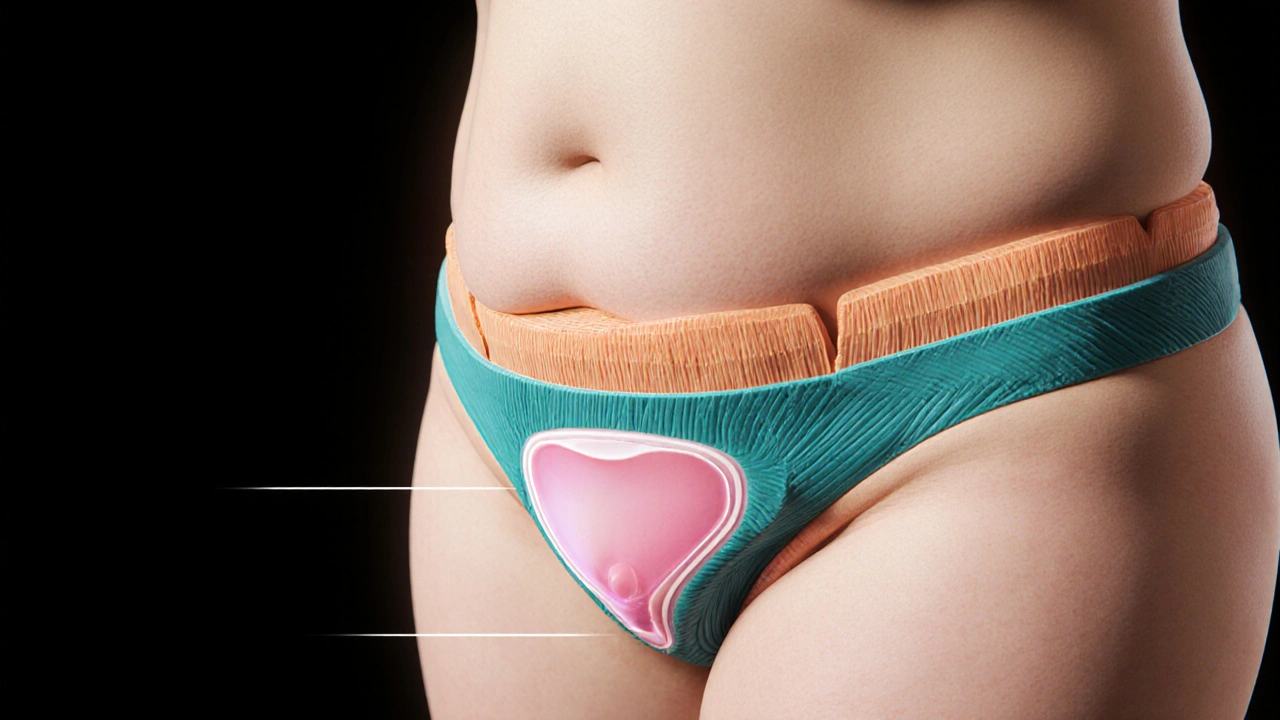Being overweight can make you leak urine more often, and that’s not just an embarrassing story – it’s a real health issue. When extra pounds press on your belly and pelvic area, they change the way your bladder works. The good news? Small changes in diet, movement, and pelvic exercises can make a big difference.
Think of your bladder as a balloon that fills up and empties when you tell it to. Fat around your abdomen pushes on the bladder, reducing its capacity and raising the pressure inside. That pressure forces urine out even if you haven’t finished drinking. In addition, obesity often weakens the pelvic floor muscles – the very muscles that keep the bladder closed.
Research shows that people with a higher body‑mass index (BMI) are twice as likely to experience stress incontinence, which happens when you cough, sneeze, or lift something heavy. The extra weight also makes it harder for the nerves that control the bladder to send clear signals, leading to urgency – that sudden, strong need to go.
First, aim for a gradual weight loss of 1‑2 pounds per week. Cutting 500 calories a day through smaller portions or swapping sugary drinks for water can add up quickly. Focus on foods high in fiber and protein; they keep you full longer and reduce the urge to snack.
Second, add a quick pelvic floor routine. Tighten the muscles you’d use to stop passing gas, hold for 5 seconds, then relax. Do this 10‑15 times, three times a day. Over a few weeks you’ll notice firmer control.Third, stay active. Walking, swimming, or low‑impact cycling strengthens the core without putting too much pressure on the bladder. Even a 20‑minute walk after dinner can lower blood sugar and help with weight loss.
Fourth, watch your fluid timing. Drinking plenty of water is important, but try to limit large volumes right before bedtime. A cup of herbal tea in the evening can keep you hydrated without overloading the bladder.
Finally, speak with a doctor if leaks persist. They may suggest a bladder diary, medication, or a referral to a physical therapist who specializes in pelvic health. Early treatment often prevents the problem from getting worse.
Living with obesity‑related urinary incontinence doesn’t have to be a lifelong curse. Small, steady steps toward a healthier weight and stronger pelvic muscles can restore confidence and comfort. Start with one change today – whether it’s a shorter soda, a quick pelvic squeeze, or a 10‑minute walk – and watch the improvement roll in.

Explore how obesity raises the risk of urine leakage, learn warning signs, and discover effective weight‑loss, diet, and pelvic‑floor strategies to prevent urinary incontinence.